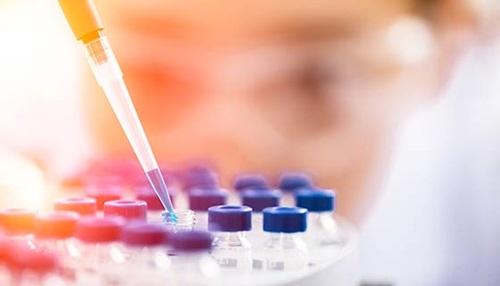MIS-C and COVID-19: Uncommon but Serious Inflammatory Syndrome in Kids and Teens
Featured Expert
Multisystem inflammatory syndrome in children (MIS-C) was first identified in April 2020 by doctors at children’s hospitals in the United States and the United Kingdom. The condition has also been called pediatric inflammatory multisystem syndrome (PIMS). MIS-C is an illness that can occur after COVID-19 infection and affects mostly school-age children. While the syndrome is uncommon, it can be serious.
Pediatrician Anna Sick-Samuels, M.D., M.P.H., provides information for parents.
Multisystem Inflammatory Syndrome: What is MIS-C?
Sick-Samuels says that MIS-C or PIMS has features in common with toxic shock syndrome and an illness called Kawasaki disease, both of which cause inflammation throughout the body.
“The syndrome is an inflammatory reaction in the body about four weeks after infection with the SARS-CoV-2 virus. The initial symptoms often include fever, rashes, red eyes, diarrhea and vomiting, and may get worse over a few days. The inflammation can affect the heart, blood vessels and other organs, which can make some children very ill and in need of urgent care.”
MIS-C Symptoms
Call your family doctor or pediatrician right away if your child experiences a persistent fever of 100.4 or more lasting more than three or four days, or if your child has a fever and any of these symptoms:
- Feeling unusually weak or dizzy
- Red eyes
- Rash (red spots, blotches or bumps)
- Significant or worsening abdominal pain, diarrhea or vomiting
- Acting unusually sleepy or confused
Even though we are still learning more about this condition, here’s what doctors and scientists know so far:
- MIS-C is a rare complication of COVID-19, but it can be dangerous. The symptoms can overlap with infections and other illnesses. Kids showing symptoms should be seen by a doctor.
- MIS-C usually affects school-age children, most commonly 8- and 9-year-olds, but the syndrome also has been seen in infants and young adults.
- MIS-C symptoms appear between two and six weeks (four weeks on average) after COVID-19 infection. Most children with MIS-C have antibodies to the SARS-CoV-2 virus.
- MIS-C is a treatable condition and most children recover fully from this illness. With prompt attention, medicines can control the inflammation and help avoid lasting organ damage, especially involving the heart.
COVID-19 and MIS-C: Morgan’s Story

Morgan, a bubbly 8-year-old, suffered a severe inflammatory syndrome known as MIS-C after a mild bout of COVID-19. Coordinated care at Johns Hopkins Children’s Center saved her life and restored her spirit.
MIS-C Treatment
“MIS-C is treatable if it is detected,” says Sick-Samuels. Doctors can use medicines such as intravenous immunoglobulin, steroids and other anti-inflammatory drugs to reduce the inflammation and protect the heart, kidneys and other organs from lasting damage.
Multisystem Inflammatory Syndrome in Children and COVID-19: What Is the Connection?
Sick-Samuels explains that MIS-C is triggered by the virus that causes COVID-19. It can occur in children who have not had any common symptoms of COVID-19, such as fever, sore throat or cough.
“Most children with MIS-C will have antibodies to the SARS-CoV-2 virus, indicating their body has been infected previously,” she notes. “The number of MIS-C cases also rises about four weeks after waves of COVID-19 cases in that community. Doctors and researchers are still learning why some children develop this illness after COVID-19 infection but not others.”
MIS-C: Call your Doctor If You Have Concerns
Doctors and researchers are still observing that, compared to adults, most children do not experience severe symptoms associated with COVID-19.
But, says Sick-Samuels, if parents are aware that their child had COVID-19 or was around someone else who had COVID-19 and the child develops fevers a few weeks later, notify their pediatrician.
If you have any questions about your child’s health, or if something about your child doesn’t seem quite right, trust your instincts and call your doctor.



